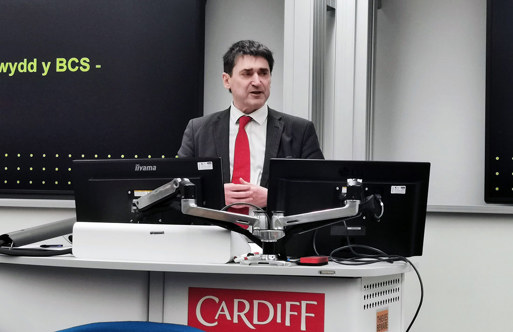Graduates are essential to our organisation. The individuals on our graduate programmes come from a diverse range of backgrounds and are always in demand from different business functions for the commitment, innovative thinking and flexible approach that enables us to deliver leading edge solutions to our clients.
What do employers look for in a trainee?
Most organisations will have set criteria that they assess every application against and although these will vary between companies there are some key themes.
- Academic results - employers are looking for candidates who have achieved consistently and most will ask for a set number of UCAS points and/or the attainment of a specific level of degree qualification, eg a 2.1.
- Work experience - this shows that you have a genuine interest in the field that you wish to enter and that you have researched the industry and have an understanding of what the career could involve. It can also demonstrate drive and motivation. If you do not complete a formal placement year with your degree you should look to have secured some relevant experience during one of your vacations.
- Extra-curricular activities - tell employers about them! We want to know about your non-academic achievements, what you've been involved in, your positions of responsibility and whether you’ve travelled. Show your enthusiasm and proactive approach to life!
- Attention to detail - Finally, I cannot stress how much emphasis employers place upon attention to detail. Poor communication skills, verbal or written, reflect badly upon an individual. Do be aware of correct grammar and spelling and ensure you ask someone to proof your applications.
What do graduates get from schemes?
Most schemes provide graduates with entry-level roles within a set profession or industry, allowing the individual to gain a wide range of experience over a set time frame.
At Capgemini, we have structured programmes for technology, management consultancy and outsourcing. The schemes differ in type of work, roles involved, location and length of projects. Some graduates will find themselves frequently changing roles, clients and locations. Some may take different roles with the same client and others may specialise in a specific discipline early on in their career.
Every organisation's scheme is different, even with companies in the same industry sector. Thorough research is therefore essential to ensure individuals are fully aware of the differences between companies and their schemes and to consider how this fits in with their career expectations versus work / life balance.
The induction
Your graduate training scheme is likely to commence with an induction programme, which will provide:
- an organisational overview - the history of the organisation, its vision and corporate strategy for the short and longer terms.
- a summary of the roles you may be involved in as well as talks from different business areas regarding the type of work and clients, as well as talks from current graduates on the scheme.
- general administration such as allocation of resources and billing time will also be covered.
- there could also be the opportunity to meet established members of the graduate programme through networking lunches and social dinners, an essential element to any induction.
Although at times it might feel as if you are being supplied with endless amounts of information, do take notes and use this time to ask as many questions as possible. This time is for you to fully understand the structure of the organisation and your role within it, as well as opportunities open to you.
Working life
Once your induction is complete you will be available for assignments.
You will often work with your mentor and resource manager to determine your objectives and the projects you will be involved in during the training scheme. You should receive regular reviews with your project manager as well as mentor reviews at the end of your project.
Projects do vary in length, but the average length can be between four and six months. In this time you will often work on client sites integrating with their workforce to achieve the set project objectives.
Social activities such as sports teams, regular group and scheme socials, plus the opportunity to get involved with the community through assisted learning schemes and other established corporate social responsibility initiatives are also aspects of your working life that Capgemini support.
Finally you will find that many firms are keen for you to progress and will support further learning, both in-house, through a number of structured skills courses, and externally with certified courses.
The timescales involved will differ from company to company and also on your own personal development, so do ask these questions at interview stage to ensure you fully understand the level of support you will receive from an employer.
What happens at the end of the scheme?
It is likely that through your experience you will soon establish where your preferred area of expertise is and during your training you may be asked to submit a preference as to your desired business area.
At Capgemini we encourage individuals to foster greater links with their desired business unit and on occasion do require the individual to be interviewed to ensure the choice is right for both parties.
Once completed you should make a smooth transition into a business unit, where you will be given the opportunity to develop your individual work ethic and shape your future!

















